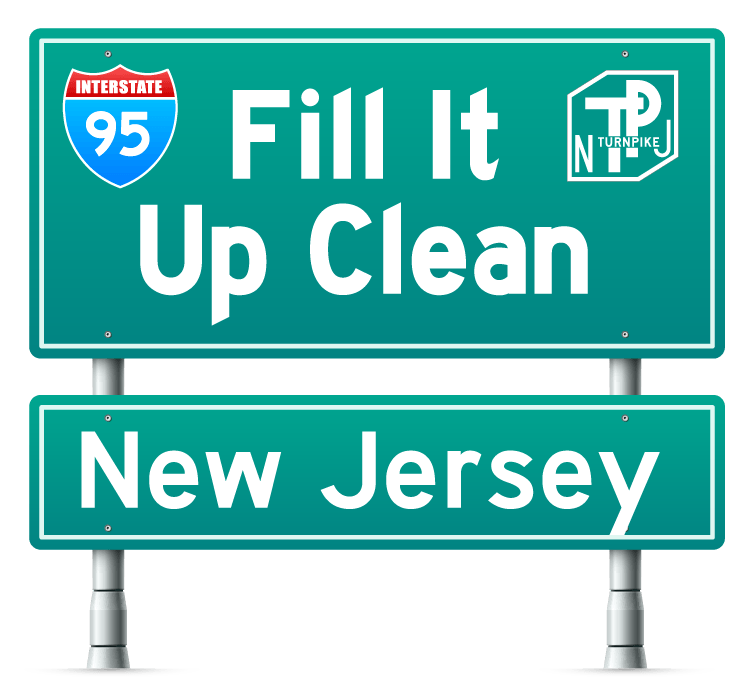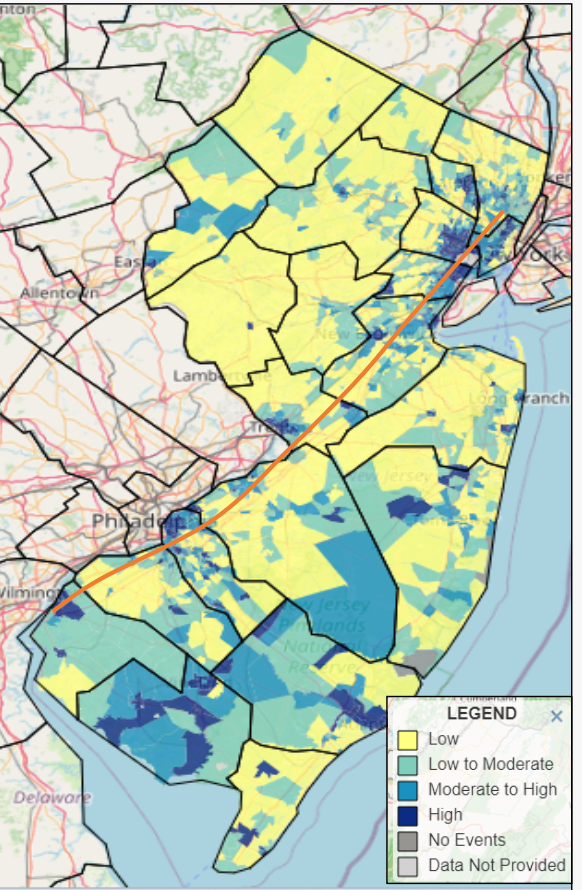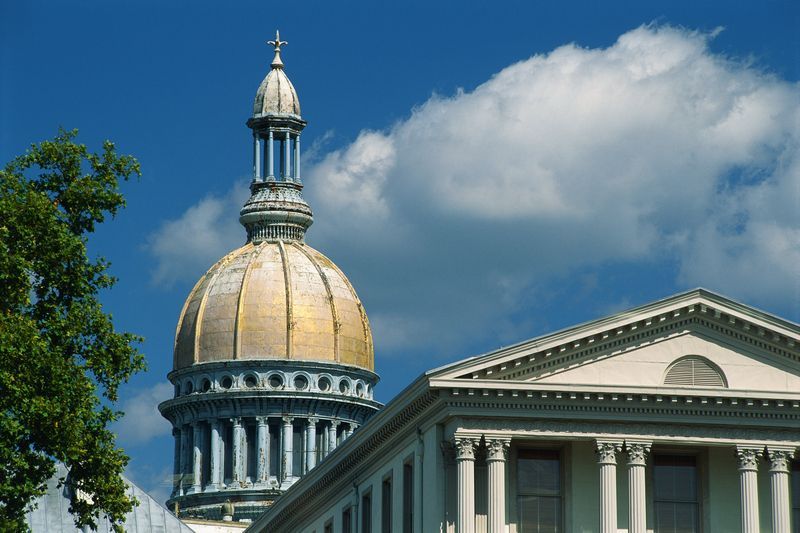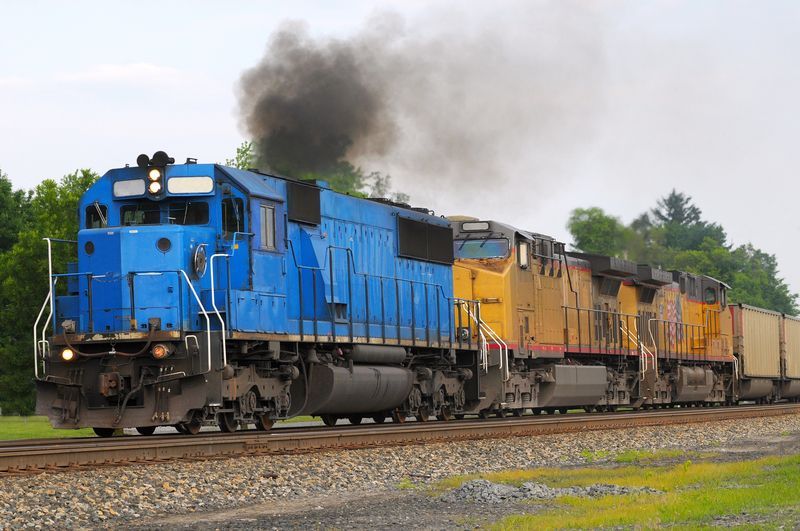New Jersey's Air Quality Crisis
An Inconvenient Threat To Our Health We Can No Longer Ignore
To anyone who has lived in New Jersey for any length of time, you’ve come to understand that the state is known for its poor air quality just as much as it’s known for its beautiful shoreline, institutions of higher learning, and as the birthplace of some of America’s most famous scientists and entertainers.
Unfortunately, the biggest blemish on our state doesn’t appear to be improving much, according to the recent annual “State of the Air” report from the American Lung Association.
Not only did New Jersey fare poorly against other states, some of our counties had among the worst air pollution in the nation. Bergen and Mercer counties, in particular, were given "F" grades for ozone pollution, and Monmouth County barely scraped by with a "D." This isn't just a bad report card; it's a red alert for public health.
The Ground Zero of Pollution: Bergen and Mercer Counties
Crisscrossed by major highways, Bergen County residents breathe in a toxic stew produced by the exhaust of emissions from heavy diesel trucks that dominate its roads, the relentless activity of nearby seaports, and the non-stop operations at Newark Liberty International. These aren't just minor contributors; they are the primary villains in our pollution narrative.
Mercer County tells a similar tale of woe. Here, where two-thirds of the population are people of color, the "F" grade in ozone pollution is a legacy of redlining and environmental injustice, manifesting itself in elevated rates of asthma, lung cancer, and COPD. The link between these health issues and the air they breathe is irrefutable and tragic.
Monmouth County: The Struggle for a Breath of Fresh Air
Not far behind, Monmouth County's "D" grade in ozone pollution is hardly a consolation. Like its neighbors, Monmouth is plagued by the consequences of proximity to industrial activities and major transportation routes. The air here carries a cocktail of pollutants that residents inhale every day, leading to long-term health consequences that are impossible to ignore.
The Real Culprits: Industrial Emissions and Transportation Fuel
While personal vehicles contribute to ozone formation and particulate matter pollution, and tailpipe emissions from sitting in traffic contribute to our air quality problem, drivers in New Jersey are emitting 10 million fewer tons of CO2 each year than they did two decades ago. In fact, New Jerseyans emit far less CO2 per person than the national average.
The real culprits are the industries and large-scale transport operations that treat our air like a dumping ground. While residential and commercial emissions from New Jerseyans are one-third lower than the rest of the country, transportation and industrial emissions are one-third higher.
How To Reduce Pollution From Heavy Duty Transport & Industry
The common link between heavy duty transportation like shipping, trucking, and airlines is petroleum-based diesel fuel.
Newark Airport has the 7th highest diesel particulate emissions among our nation’s airports, and the Port of New Jersey, the largest seaport on the East Coast, emitted over eight million tons of source air pollutants in 2019, the most recent year statistics are available, mainly from cargo ships belching diesel bunker fuel while sitting in port and trucks idling while awaiting cargo to be loaded on to their beds for destinations around the country.
Then there’s the New Jersey Turnpike, where trucks rumble through our state on their way to places from Portland, ME to Miami. As you can see in the image, most of New Jersey’s worst air quality falls along I-95’s north-south corridor.
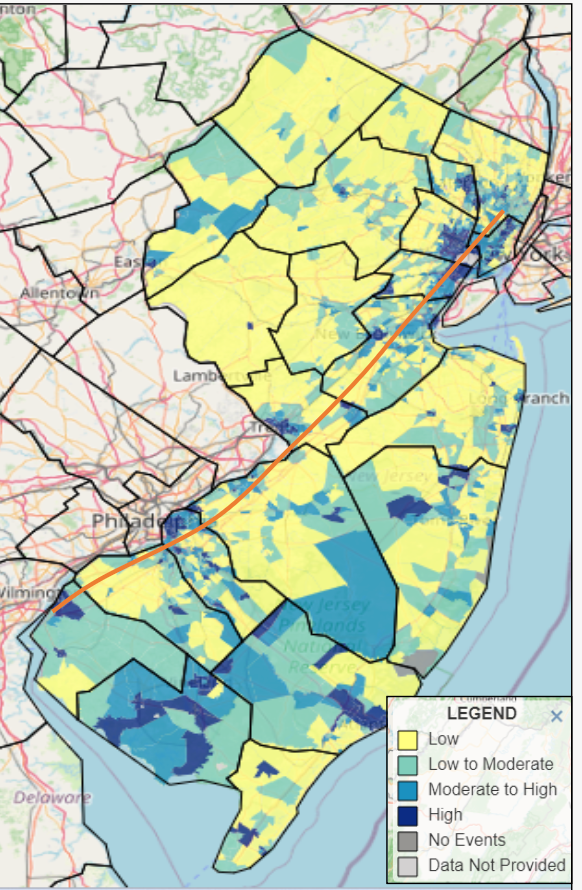
Reducing Air Pollution Requires A Cleaner Fuel
Whether you are a commuter in a passenger vehicle, a truck driver, or an airline owner, you’ve been forced to use a fuel that’s harmful to your health and to our planet for the last hundred years.
Why? The oil industry’s monopoly. They control the supply, price, and distribution system.
Car and truck drivers and airplane passengers have no choice. However, competition from cleaner fuels is becoming a reality.
Millions of gallons of greener diesel made from used cooking oils, fats, and greases are being produced in states that have enacted clean fuel standards, which forces oil companies to either clean up the fuel they make or pay credits to those who are diverting waste from landfills and recycling it into eco-friendly gas and diesel that runs up to 80% cleaner than petroleum.
Oil companies have seen the future on the horizon, and despite fighting clean fuels legislation, they are investing billions of dollars into their refineries so they too can produce cleaner fuels.
Renewable diesel, in particular, is chemically identical to petroleum diesel, and has proven so popular in California that it now makes up the majority of all diesel sold in the state.
New Jersey Should Enact A Clean Fuel Standard
With two oil refineries located in our state, New Jersey is primed to benefit from becoming the fifth state in the nation to enact a clean fuel standard, and legislation has already been introduced in Trenton by State Senator Bob Smith.
There are over 20,000 restaurants in our state that use cooking oil, and once used, that oil needs to go somewhere. Without a clean fuel standard, it would likely find itself headed west to Washington or California or even Singapore, places with refineries capable of turning it into greener diesel for trucks or sustainable aviation fuel for airplanes.
A clean fuel standard in New Jersey would result in a consistent revenue stream to all of those small restaurant owners while reducing the need for the petroleum-based diesel that’s clogging up our lungs.
A Penny At The Pump Reduces Health Care Costs
Since 2011, California’s clean fuel standard has been responsible for displacing over 21 billion barrels of oil. In Oregon, which launched it’s clean fuels program in 2016, greenhouse gas pollution reduced more than anywhere else in the country.
In a study looking at California’s clean fuel standard, the health benefits included $8.3 billion in pollution-related health costs such as avoided hospital visits and lost work days. Forecasts showed by 2025, the CFS will have prevented 38,000 asthma attacks as well as 600 heart attacks, 880 premature deaths, and almost 75,000 lost work days – all caused by air pollution.
Critics of the clean fuel standard have carried on like Cassandras, warning of massive price hikes for consumers, but consumers in states that have passed the law are spending less of their household budgets on fuel. Meanwhile, air pollution costs our economy five percent of our gross domestic product (GDP) annually, according to a Stanford University study.
To those who might dismiss these concerns, consider this: The cost of inaction is measured not in economic losses but in human lives—lives that are cut short or filled with chronic illness because of our collective failure to act.
The Air We Breathe Defines the Future We Build
The health of our community is not negotiable, and the air we breathe should not be toxic. New Jerseyans have a responsibility to demand better—not just for ourselves, but for future generations. The fight for clean air is a fight for our right to a healthy life. It's a fight we cannot afford to lose.
Take a deep breath, and urge your state legislator to vote in favor of a clean fuel standard.

